
19 December 2023Banking, Climate Change, Impact Centre, Insurance, Investment, Nature, News, Policy, Pollution & Circular Economy, Social
POPULAR CONTENT

19 December 2023Banking, Climate Change, Impact Centre, Insurance, Investment, Nature, News, Policy, Pollution & Circular Economy, Social

18 November 2012News

19 December 2023Climate Change, News
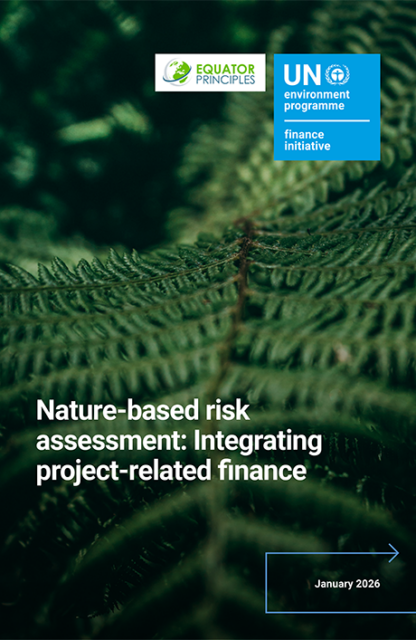
This guidance, co-developed with Equator Principles, supports project-related financing teams as well as risk professionals within financial institutions, particularly banks, by outlining how to conduct a nature-based risk assessment at the corporate, portfolio and project levels using existing frameworks and tools. It highlights how nature-based risk assessments can improve risk identification, strengthen due diligence, enhance collaboration with clients, and support better decision-making across project finance and portfolios.
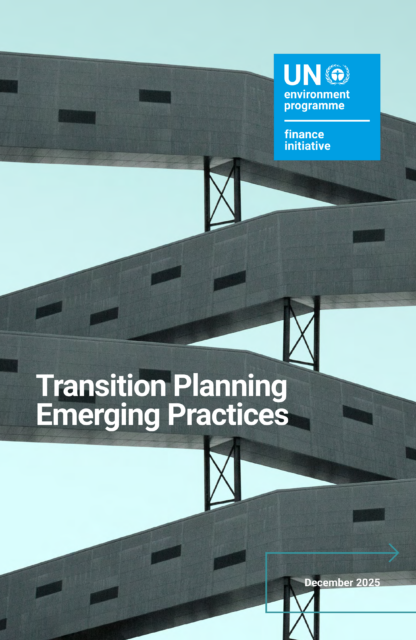
Transition plans are increasingly becoming a key focus area for policymakers and regulators across jurisdictions. At the same time, an…
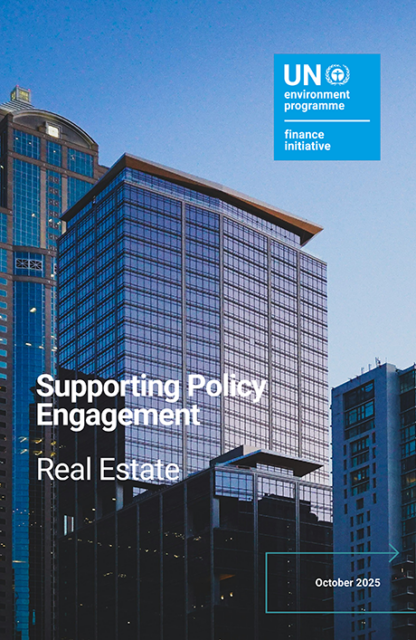
The real estate sector is one of the largest contributors to global greenhouse gas (GHG) emissions, representing 34% of total carbon dioxide (CO2) emissions. It is also one of the more challenging sectors to decarbonize due to the decentralized nature of building ownership and the significant role of value chain emissions, notably from power grids and construction.
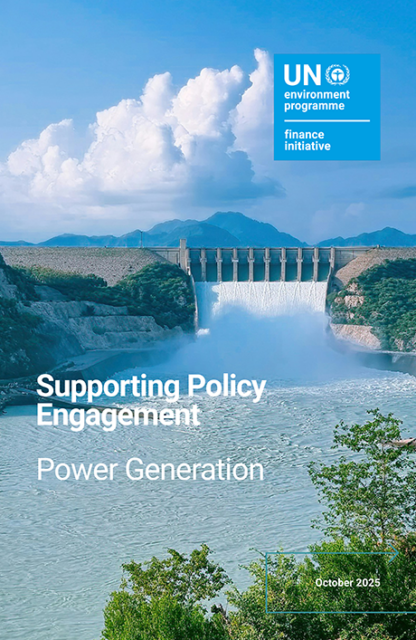
The power generation sector lies at the heart of the transition needed to meet the goals of the Paris Agreement, as it underpins economy-wide electrification and decarbonization efforts. Renewable energy technologies are key to this systemic transformation, but grid congestion and modernization issues need to be addressed, storage and baseload considerations are critical and existing fossil fuel plants will need to be retrofitted.
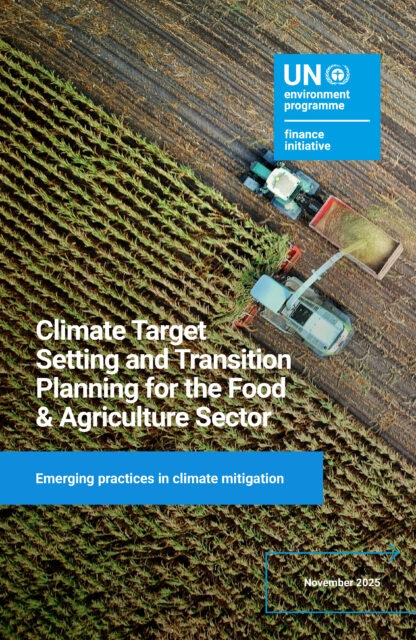
The food and agriculture sector accounts for roughly one-third of global greenhouse gas (GHG) emissions—making it both a major challenge and a critical opportunity for climate action. The most immediate gains lie in reducing on-farm emissions and in addressing land-use change emissions. These efforts can be complemented by enhancing carbon sequestration through sustainable practices.
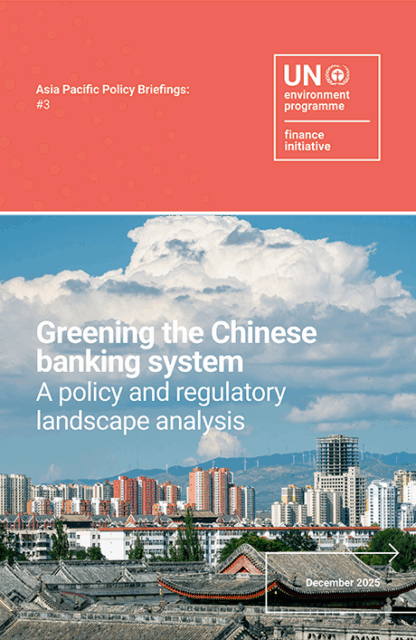
A new UNEP FI policy brief discusses the evolution of the sustainable finance policy and regulatory landscape in China. It is intended as a short and accessible primer for financial sector stakeholders, policymakers and others with interests in China's green finance policies—highlighting the key sustainability-oriented regulation and instruments that China has deployed over the past two decades.

This series helps banks addressing pollution, one of the three planetary crises alongside climate change and biodiversity loss. The first sectoral supplement offers banks a practical framework to start reducing pollution impacts and manage risks related to the buildings and construction sector within their portfolios.

This series focuses on the nexus between circular economy and climate mitigation, outlining steps for banks to effectively embed circular solutions in their climate transition plans to achieve their net-zero and climate mitigation targets. It includes four sector supplements, guiding banks to develop sector-specific financing action plans that promote circular economy principles in high impact sectors with significant circularity potential, namely agrifood, buildings and construction, textiles, and metals and minerals.
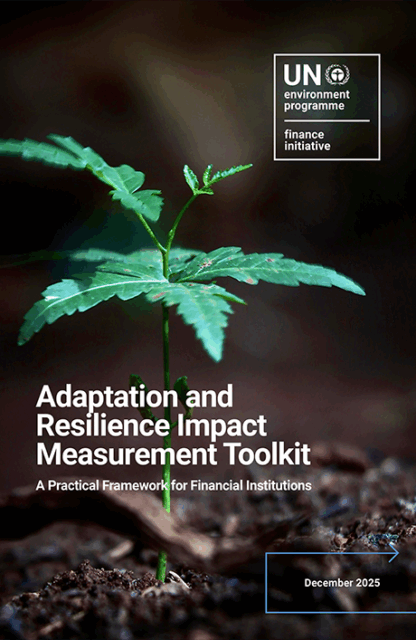
The Adaptation and Resilience Impact Measurement Toolkit is available as both an excel file and a web app and downloaded alongside an explanatory word document. It provides sustainability, investment, impact and risk teams at financial institutions with a practical, credible framework for assessing, tracking, and reporting adaptation and resilience impact across their financing activities.

In this new policy brief, UNEP FI and the European Banking Federation (EBF) share seven potential policy levers to help strengthen the investment case for the EU chemical sector and help it attract finance for its sustainable transition.